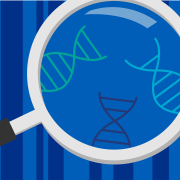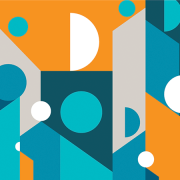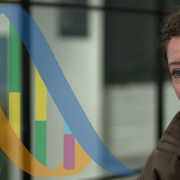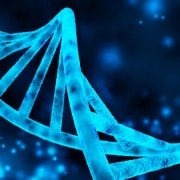From patient to advocate
Helen White tells us how her own diagnoses compelled her to carve a path in representing others
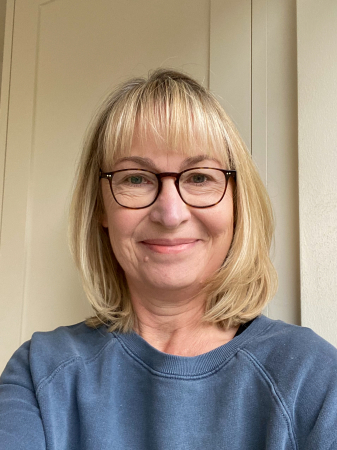
I remember laughing out loud, which now, in retrospect, seems highly inappropriate.
You never forget the people who deliver the news. It was the way they held their head in their hands, the way the nurses looked at me as though I didn’t have long to live. That’s what they believed, I guess. And so did I.
If you’re ‘lucky’ like me, you get to a point where you can look back on all of this and reflect. If you’re lucky, you get to the point where you can use your experience to help others.
Although I never consciously set out to become a patient advocate, it’s now a big part of my life.
When I learned that I had womb (endometrial) cancer as an otherwise healthy 53-year-old, it came as quite a shock. I vividly remember the initial disbelief and the surreal feeling that followed as I pondered whether I would be alive in a few years’ time, yet felt strangely calm about the prospect of death.
Fast-forward just over a year to a beautifully sunny September morning in 2018, when I strapped on my boots to hike 25 kilometres in the beautiful Peak District National Park. I’d signed up for the Eve Appeal’s Go Red Trek, something inside compelling me to take action to help prevent other women from going through a gynaecological cancer.
Surrounded by green hills and nearing the home straight, I plucked up the courage to speak with Dr. Neil Ryan, a doctor who was researching Lynch syndrome – a genetic condition that causes womb cancer in a small proportion of women. “Yes, Lynch syndrome can cause womb cancer in women over the age of 50,” he explained. Check. “And, yes, even without a significant family history, it’s possible you could have Lynch syndrome.”
By the time our conversation was finished, I was resolved to find out if I could get tested.
Following tumour testing and then a blood test, which all took several months, I finally received a letter confirming that I have Lynch syndrome (I have a harmful variant in my MSH6 gene).
Although Lynch syndrome had been playing on my mind, I was convinced I didn’t have it, so the diagnosis came as quite a surprise. It did feel, and continues to feel, really positive, though, as it gave me an explanation for why I’d developed womb cancer and enabled me to take action to reduce my risk of getting another cancer.
Most importantly, my Lynch diagnosis meant that my close relatives would be offered the opportunity to get tested and take preventative action too.
From the early days of my cancer diagnosis through to discovering I have Lynch syndrome, I’ve always been curious about these conditions and sought to understand them as much as possible.
But there was much more that led me to advocacy.
For starters, I’m tenacious – some might say stubborn – and not one for giving up on an idea! I thrive with challenge, too, and I like to see the tangible results of my efforts. Knowing that I’ve made a difference, even a small one, is something I deeply enjoy.
Additionally, being offered the opportunity to take part in an ambitious research project when I was diagnosed with womb cancer was a defining moment that opened many doors.
Though Lynch syndrome testing wasn’t widely available at the time of my cancer diagnosis, I was offered the chance to participate in the 100,000 Genomes Project. Being able to contribute to research that could benefit others in the future felt like a really positive thing at what was otherwise a grim time.
Consenting to join this project led, one year later, to me becoming a member of the Participant Panel at Genomics England – my first experience of public and patient involvement. Learning so much from my fellow panel members, this is where the spark for advocacy ignited in me.
Becoming vice chair for cancer on this panel last year has been an incredible opportunity to advocate for the thousands of participants who generously donated their data for cancer genomics research. They, like me – although many not so lucky – wanted researchers to make use of their data to help people like them. It’s a privilege and honour to speak on behalf of them.
As a member of the Cancer Research UK-funded CanGene-CanVar programme’s Patient Reference Panel, I’ve also actively contributed to a decision aid for people diagnosed with Lynch syndrome. Being a member of the Lynch Syndrome UK Facebook group has given me a good sense of the collective frustrations within the Lynch community!
Perhaps the thing I’m most proud of is establishing and running Peaches Patient Voices, which connects people affected by womb cancer with researchers. Through this, I get to hear their concerns and what matters most to them, which has made me a better advocate. Better still, some have gone on to become advocates themselves.
My own experience of healthcare has been, in the main, excellent. But I’ve seen over time that so often this isn’t the case. There are people who receive important letters that they can’t understand. People who hear words that jar or dehumanise. There are agonising waits with no communication. There’s bad news on a Friday (with no one to talk to all weekend).
There are plenty of things that can be done better; and plenty more advocating yet to be done.




